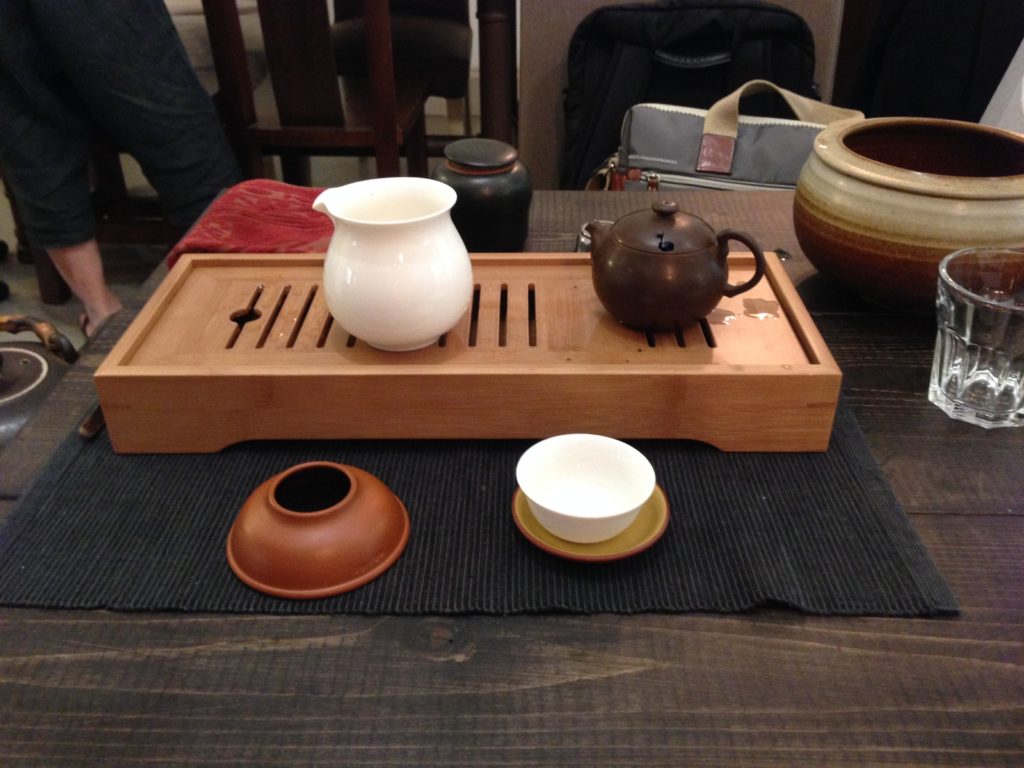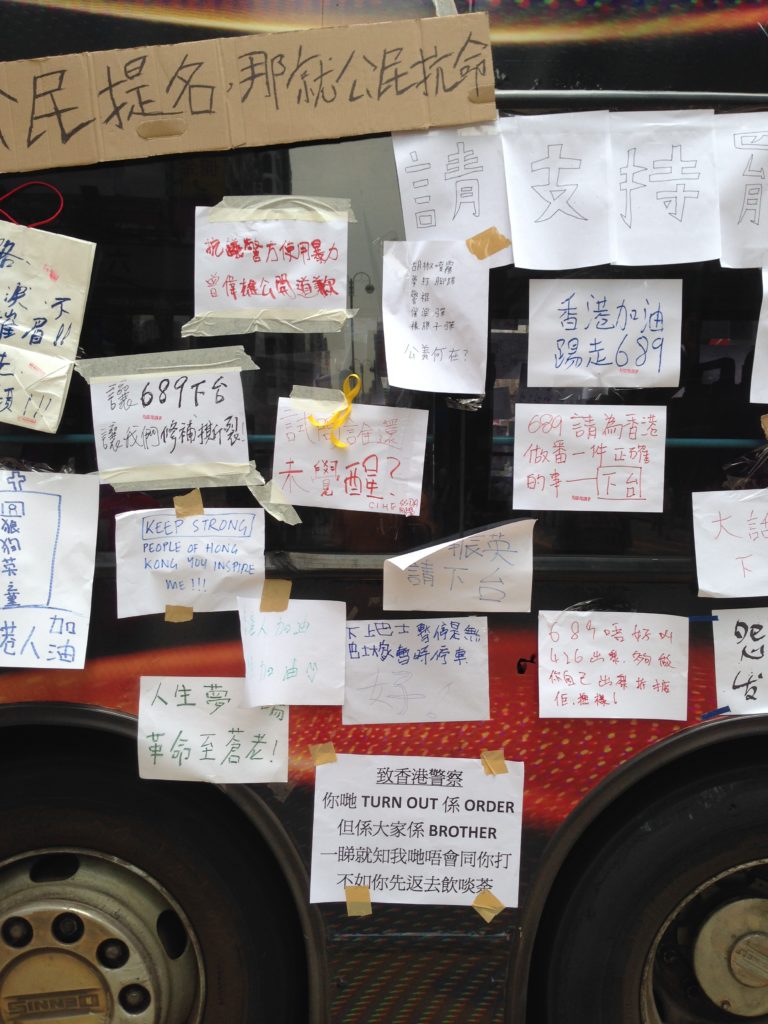 Despite its historical roots as an important trading post for tea, the Hong Kong of today is not that friendly towards teashops and the tea buying public. There is a lot of tea around – you encounter the drink everywhere. The default drink at a lot of places is weak, watered down tea. The favourite drink to order at a local restaurant is Hong Kong style milk tea. You can’t avoid the stuff. Yet, if you want a more “refined” experience drinking tea, or if you want tea that can be considered more specialized, this isn’t a friendly place.
Despite its historical roots as an important trading post for tea, the Hong Kong of today is not that friendly towards teashops and the tea buying public. There is a lot of tea around – you encounter the drink everywhere. The default drink at a lot of places is weak, watered down tea. The favourite drink to order at a local restaurant is Hong Kong style milk tea. You can’t avoid the stuff. Yet, if you want a more “refined” experience drinking tea, or if you want tea that can be considered more specialized, this isn’t a friendly place.
The chief enemy here is really one that plagues the city for almost everything – high rent. The lack of land, the influx if large number of mainland tourists, and the sheer density of the city mean that every store front is precious. In a city that has always been built vertically to the extent that is possible given whatever current technology we possess, street-level stores are a precious commodity. When you stroll down some of the busiest shopping areas, you will see rows and rows of jewelry shops, luxury clothing stores, and pharmacies that cater to the mainland trade. Shops that cater to local needs are usually relegated to back streets and residential neighbourhoods. It’s a very strange sight.
In this context, it is very difficult for stores specializing in selling tea to survive. The first challenge is to overcome the rental market. Owners of stores often charge exorbitant rents for very small spaces if they happen to occupy good locations. Some even charge rent according to the amount of turnover the store does – so the more money the store makes, the more money the landlord makes. Unfortunately, tea businesses in general aren’t going to be that popular. There are really two paths to survival – one is to lower costs as much as possible, the other is to charge sky high profit margins to make the rent.
So for the cheap side, there are a few ways to do that. The first is to somehow own your own store – a number of older stores in Hong Kong do that, and are therefore impervious to rent increases. A lot of the shops on Bonham Strand, for example, are in this model. They bought their place fifty years ago, and aren’t looking to move. They make a decent living selling tea, and are happy doing it instead of, say, closing shop and renting it out to a fancy new restaurant. So they keep up their business and sell decent tea for cheap. They are, however, probably not profit-maximizing and shops like this are prone to closing when the older owners pass it on to their descendants.
The other option is to “go upstairs”, where the shops no longer operate on the ground floor, but move to a building inside. These are usually located in cheaper, older buildings, where they occupy what is basically an office space but renovated to be a teashop. Rents for these are much lower, and can often be supported by a small tea business. There are now a number of these in operation. I just visited one recently, called the House of Moments, where I took the above picture. The tea was all right, but it was rather expensive for what it was ($30 USD for an ounce of Taiwan roasted TGY). You pay for the space you occupy basically, and in Hong Kong, space is expensive.
The other option, which is to charge high margins, is really geared towards the gift/tourist trade. The Best Tea House has increasingly gone that way in recent years. There’s Fook Ming Tong, which is also just an expensive gift shop that happens to sell tea. Then there are things like TWG Tea, which shamelessly puts 1837 on their logo even though the company was founded in 2008, and whose colour scheme is an obvious attempt at ripping off Mariage Freres (whose 1854 on the logo is at least real). They usually occupy nice malls and have prominent displays. These places are really to be avoided by those of us who really want to buy decent tea – only visit if you want something with decent packaging.
It’s really rather unfortunate, but given the local infrastructure, there isn’t much that could be done. There’s a reason Taiwan has a relatively thriving tea scene – it’s cheap to set up a good shop and cheap to keep it running, where in Hong Kong it’s the opposite. If you were an alien visiting the city you’d think we all eat gold here, but in fact, it’s a place where small businesses have a hard time surviving. If you want to buy good tea when you’re in Hong Kong, visit Bonham Strand to try your luck. Otherwise, just skip right on ahead to somewhere else.


 RSS - Posts
RSS - Posts
I took you at your suggestion and have been reading some of your old post-Covid posts. I haven’t been to…